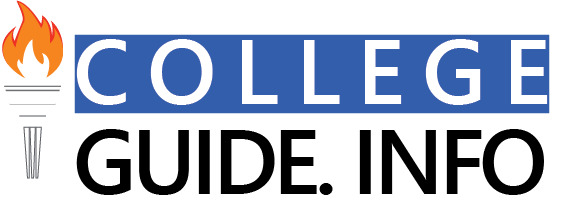





10 Interesting Facts about Saginaw Valley State University
- Saginaw Valley State University (SVSU) is a public university located in University Center, Michigan, United States. It was founded in 1963 and is a member of the state’s public university system.
- SVSU is accredited by the Higher Learning Commission and offers a wide range of undergraduate and graduate programs across various disciplines. The university has several colleges, including the College of Arts and Behavioral Sciences, College of Business and Management, College of Education, and College of Health and Human Services.
- The university has a strong emphasis on hands-on learning and experiential education. It offers opportunities for internships, co-op programs, research projects, and community engagement to help students apply their knowledge in real-world settings.
- SVSU is known for its commitment to student success and support services. The university provides resources such as academic advising, tutoring, career counseling, and a writing center to help students excel in their academic and professional endeavors.
- The campus of SVSU spans over 782 acres and features modern facilities, including state-of-the-art classrooms, laboratories, a library, residence halls, athletic facilities, and a performing arts center.
- The university has a diverse and inclusive campus community. SVSU actively promotes diversity, equity, and inclusion through various initiatives, programs, and student organizations.
- SVSU has a strong reputation for its nursing and health programs. The university offers a Bachelor of Science in Nursing (BSN) and other health-related degrees, preparing students for careers in healthcare and addressing the growing demand for skilled healthcare professionals.
- The university has a robust athletics program. SVSU’s athletic teams, known as the Cardinals, compete in NCAA Division II as part of the Great Lakes Intercollegiate Athletic Conference (GLIAC). The university offers a variety of sports and has achieved success in numerous athletic competitions.
- SVSU places a strong emphasis on community engagement and service-learning. The university encourages students to participate in volunteer work, service projects, and community-based research to make a positive impact on the local community and beyond.
- SVSU has a strong alumni network, and graduates have gone on to successful careers in various fields, including business, education, healthcare, government, and the arts. The university’s commitment to academic excellence, experiential learning, and community engagement prepares students for leadership roles and successful futures.
Admissions
Acceptance Rate
78%
| SAT Range | 960-1170 |
| ACT Range | 19-25 |
| Application Fee | $0 |
| SAT/ACT | Considered but not required |
| High School GPA | Required |
| Accepts Common App | Yes |
Tuition & Fee
2022-23 ACADEMIC YEAR
FULL TIME
TUITION AND MANDATORY FEES
Full time students take an average of 14 credit hours per semester
$10,800
BOOKS AND SUPPLIES
Estimated average
$1,110
COST OF ATTENDANCE
$11,910
HOUSING AND MEALS: $11,400
SVSU voted the best dorms in Michigan and #1 in the nation (Niche.com)! Students select weekly meal plans or a block plan option; whatever fits you best.
PERSONAL/MISCELLANEOUS: $1,210
At SVSU, freshmen are encouraged to bring cars on campus—there are no parking fees.
NON-RESIDENT/ INTERNATIONAL STUDENT
Standard tuition for non-resident/ international students is $25,380. All other fees average the same.
All Programs
Arts
Arts
Drama and Theatre Production
Graphic Design
Performing Arts
Studio Arts
Business
Accounting
Business
Finance
International Business
Managerial Economics
Marketing
Operations Management
Education
Early Childhood Education
Education
Elementary Education
English and Speech Teacher Education
Foreign Language Teacher Education
High School Education
History Teacher Education
Mathematics Teacher Education
Physical Education Teaching and Coaching
Science Teacher Education
Social Studies Teacher Education
Special Education and Teaching
Health Professions
Athletic Training
Health Service Preparatory Studies
Kinesiology and Exercise Science
Medical Laboratory Technician
Nursing
Public Health Education
Rehabilitation and Therapy
Humanities
Communications
Creative Writing
English
French Language and Literature
Geography
History
International Studies
Liberal Arts and Humanities
Music History and Literature
Physical Sciences
Political Science and Government
Professional and Technical Writing
Psychology
Public Administration
Social Work and Youth Services
Sociology
Spanish Language and Literature
Science, Technology, and Math
Biochemistry and Molecular Biology
Biology
Chemistry
Computational and Applied Mathematics
Computer Systems Analysis
Ecology and Evolutionary Biology
Electrical Engineering
Environmental Science
Information Science
Mathematics
Mechanical Engineering
Neuroscience and Neurobiology
Physics
Students
Full-Time Enrollment
5,713 Undergrads
Part-Time Undergrads
1,076

